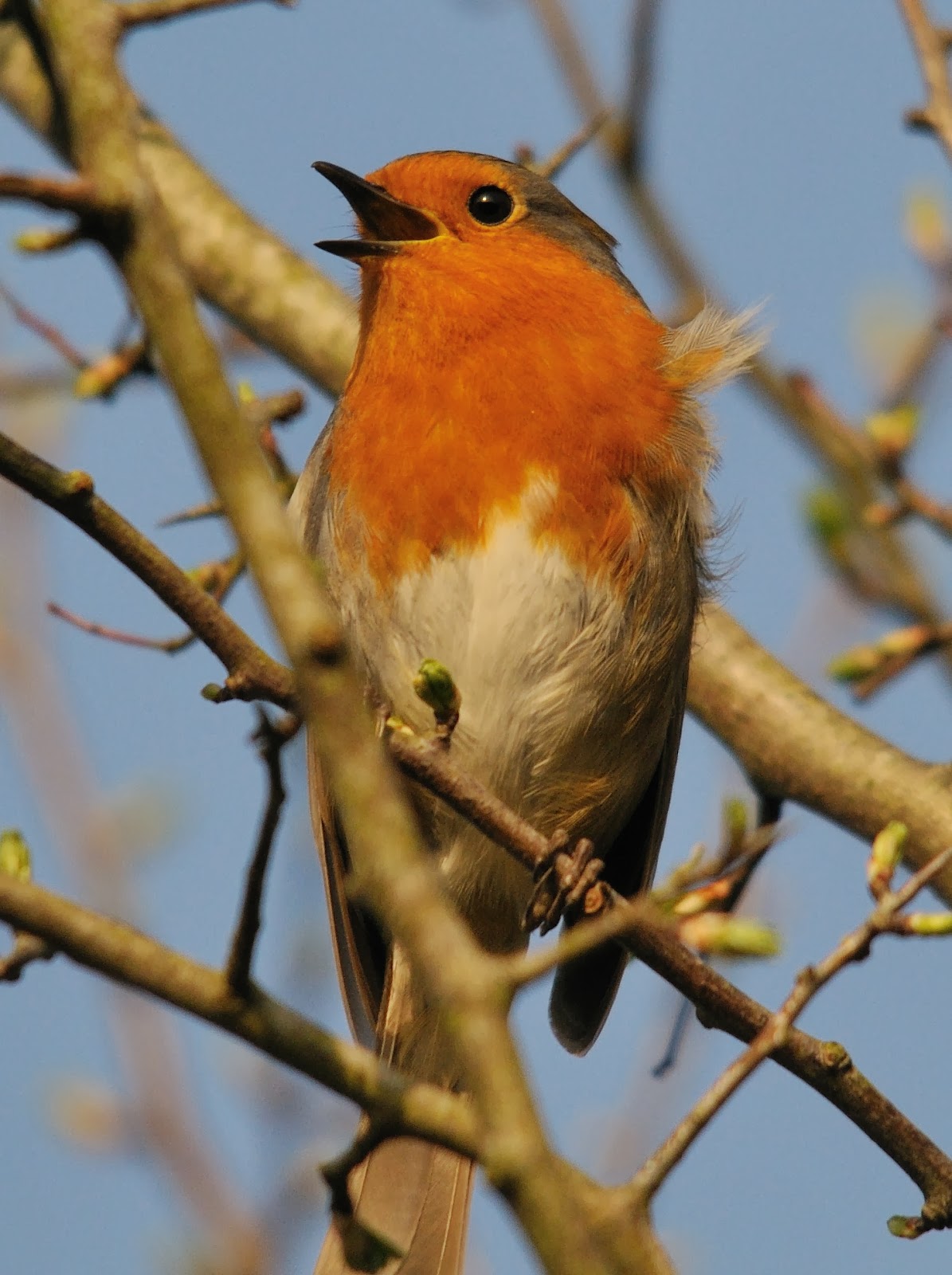 |
| Robin by Andrew Malcolm |
Birds sing
in order to communicate and for two main reasons -
- to attract a mate
- to defend a territory
A
male bird singing in spring and early summer (and it is mostly males)
is proclaiming that he is in tip-top breeding condition and is ready
and able to mate. Females in the vicinity are attracted by the song
and can judge by it whether or not the singing male will make a
suitable mate. She can decide by the quality of his song as to
whether he is strong and healthy enough for the rigours of mating and
providing food for their offspring.
The singing male is
also defending his territory. He is, in strident terms, telling
other
males that this patch is his, as is the female, and to keep well
away. Just as the female is attracted to the male's song, other males
are repelled by it. This largely avoids unnecessary physical
confrontation between males which could lead to injury to either or
both. An injury to any wild animal greatly reduces its survival
chances. Furthermore, if a male for whatever reason, does not defend
his territory, another, probably younger male, will quickly move in
and take over.
 |
| Garganey by Richard Zamora |
 |
| Song Thrush by Fran O'Connell |
Perhaps
the best time to listen to birdsong is at dawn, the aptly named 'Dawn
Chorus'. Why should birds sing most actively at dawn? At dawn the air
has not warmed up so that conditions are usually fairly still and
sound carries further. The males are also proclaiming that they are
still alive and active and re-asserting their claims to territory and
females after the night. It is also thought that feeding
opportunities being limited at dawn, the birds can devote their time
more readily to singing.
 |
| Wren by Fran O'Connell |
By
mid-July, singing will have very much declined. Most birds will have
mated by then and competition for mates and territory will have
fallen off. By late summer many species of bird will be in active
moult and the last thing any bird will want is to attract a predator
whilst their flying ability is impaired.
 |
| Skylark by Andrew Malcolm |
In
addition to singing, birds have a range of other vocalisations. These
are used to warn other birds of threats such as predators and other
dangers. Many species have contact calls, particularly used in
feeding and migrating flocks to keep in touch and in communicating
with fledged young. Most of us are familiar with the alarm call of a
blackbird when disturbed or the 'tick tick tick' warning call of a
robin.
 |
| Reed Warbler by Fran O'Connell |
Some
notable songsters easily heard in Waterford include the skylark with
its seemingly endless cascade of song often delivered from high up in
the sky. The song thrush is readily heard repeating each phrase of
its song over and over again. Listen out for the reed warbler singing
from deep cover in reed beds or the very loud song of a wren which
seems impossibly vocal for such a tiny bird.
Bird
song recordings are easily accessed on the internet and can be
downloaded as apps. An excellent and informative book on bird song is
'Bird Watching With Your Eyes Closed' by Simon Barnes which
introduces many familiar birdsongs of Britain and Ireland. An
accompanying podcast can be downloaded from the internet.
 |
| Yellow Wagtail by Bernie Sheridan |
RECENT
NEWS
The
discovery of an adult male yellow wagtail at Curragh Beach, Ardmore
was a nice find. Disappointingly the bird departed after a short
time, to the annoyance of would be observers. A pair of garganey was
seen at Ballinlough near Kill. Garganey are a small duck which
interestingly are the only duck species which migrates from the south
in Africa into Europe to breed. Hopefully this pair might
successfully raise a brood in County Waterford this year.
No comments:
Post a Comment